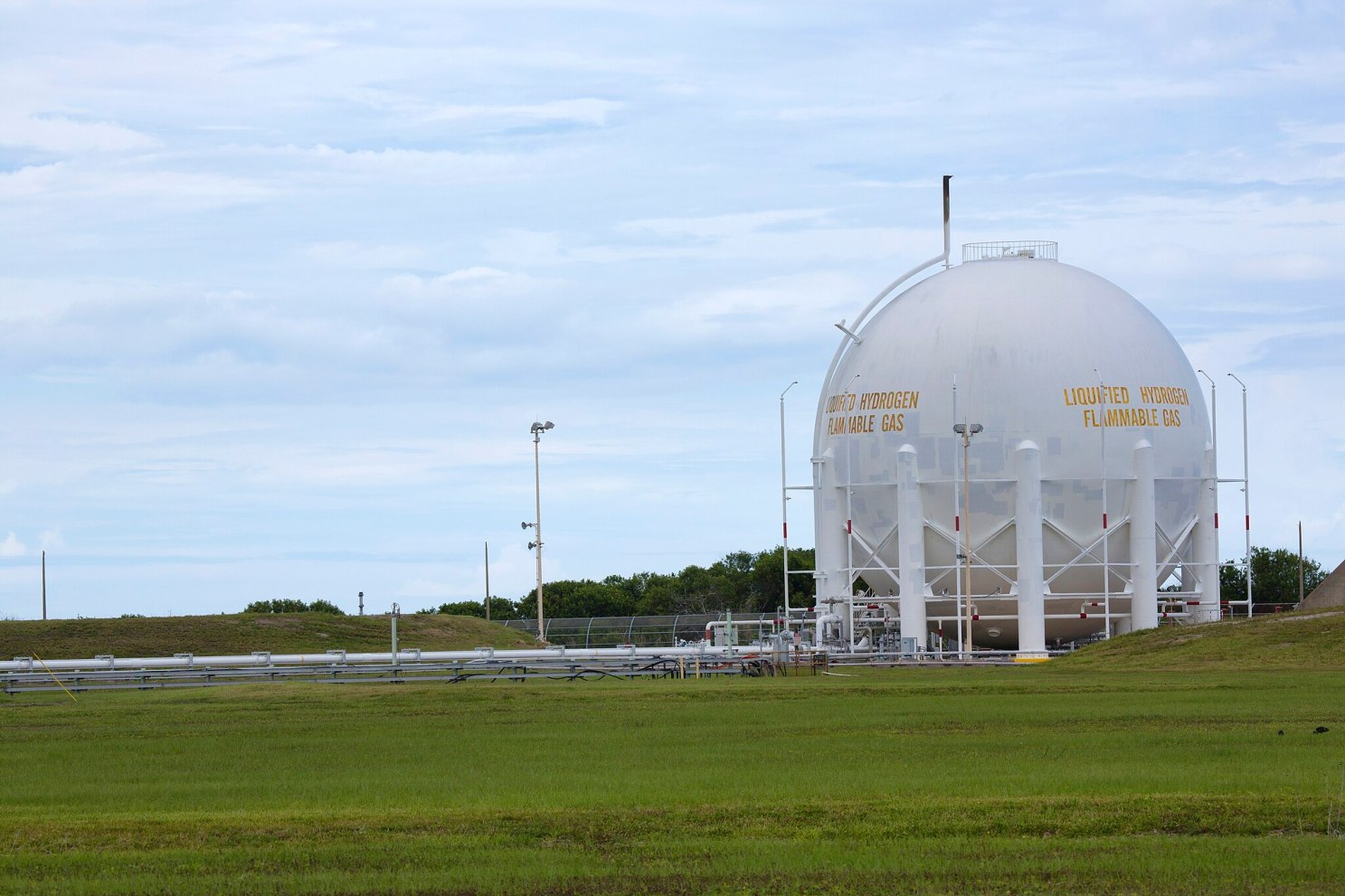Green hydrogen far pricier than projected

A storage tank for liquid hydrogen fuel at Kennedy Space Center’s shuttle launch pad 39A.
TomFawls, CC BY-SA 3.0
Prices for hydrogen produced with clean energy will remain high, Harvard researchers demonstrate in the journal Joule, but the fuel may remain the only way to decarbonize some sectors.
Green hydrogen is often touted as the solution for our toughest decarbonization problems: heavy industry, transportation, energy storage. The price will fall as production increases, goes the thinking, and this carbon-free fuel — made by splitting water molecules using renewable energy — will displace fossil fuels.
But a study published in Joule on Oct. 8 by Harvard University researchers shows that most estimates overlook the significant storage and distribution costs needed to deliver green hydrogen to different sectors — or how these costs vary across end-uses.
With straightforward calculations, the authors show that at current and projected delivered costs, green hydrogen is a prohibitively expensive strategy to reduce emissions, often exceeding the costs of directly removing CO2 from the atmosphere.
“Even if production costs decrease in line with predictions, storage and distribution costs will prevent hydrogen being cost-competitive in many sectors,” said lead author Roxana Shafiee, a postdoctoral fellow at the Harvard University Center for the Environment. “Our results challenge a growing idea that hydrogen will be the ‘Swiss army knife of decarbonization’ and suggest that the opportunities for hydrogen may be narrower than previously thought.”
Determining the carbon-abatement costs (USD per ton of CO2 abated) of using green hydrogen across different sectors of the U.S. economy, the authors demonstrate the need for continued investment in other decarbonization strategies at earlier stages of development, as well as innovation in hydrogen storage and distribution technologies.
“This does not mean that hydrogen won’t play a role in a low-carbon energy future,” said co-author Daniel Schrag, Sturgis Hooper Professor of Geology and Professor of Public Policy at Harvard. “There are logistical and economic challenges with every possible solution — including biofuels and electrification. But at this early stage of decarbonization, it is important that we invest in a broad range of strategies, and not bet our future on a single approach that remains very, very expensive.”




